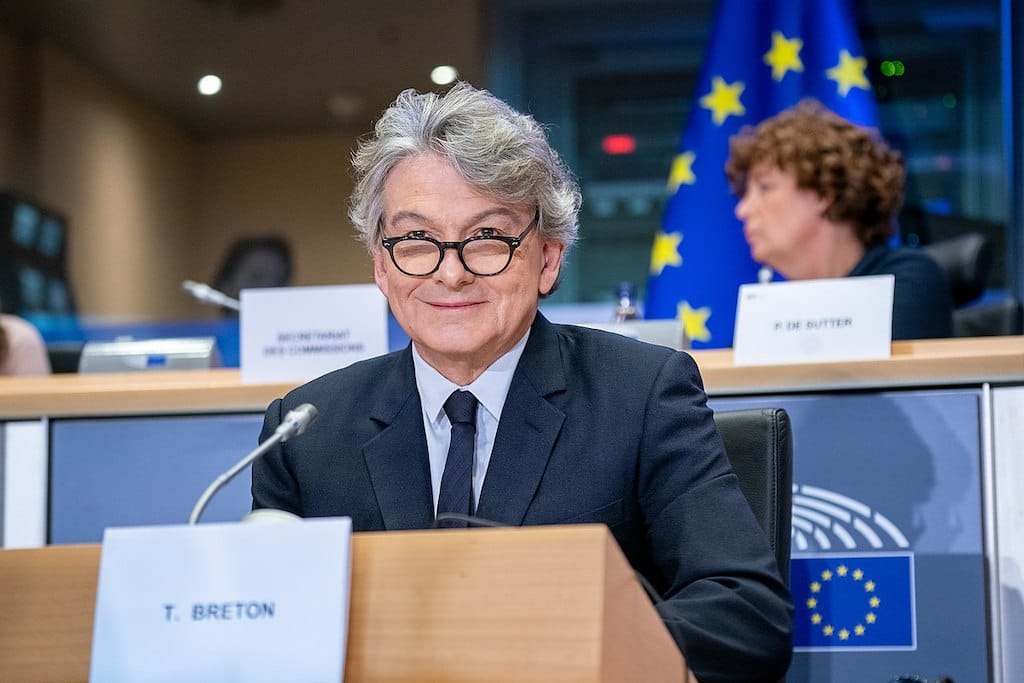EU Passes Digital Regulations, Big Tech Shouldn’t Pay into USF, Christopher Ali Joins Penn State
The European Parliament passed two pieces of legislation that are intended to tackle anticompetitive behavior and content deemed illegal.
Riley Haight

July 6, 2022 – On Tuesday, the European Parliament passed two pieces of legislation that are intended to tackle anticompetitive behavior and content deemed illegal in the European Union.
The Digital Markets Act focuses on anticompetitive behavior and the Digital Services Act focuses on illegal content. Both are set to take effect in January 2024.
“The EU is the first jurisdiction in the world to set a comprehensive standard for regulating the digital space,” stated Thierry Breton, the EU’s internal market commissioner.
The new rules could set a global benchmark for tech regulation,” stated a press release.
“The most far-reaching Western efforts to rein in technology companies in at least a generation,” the release added. “They build on the EU’s effort to expand its role as a global tech regulator and offer what proponents say is a road map for digital legislation in the U.S. and elsewhere.”
Trade associations ask FCC to drop idea of Big Tech contributing to USF
Trade associations have again told the Federal Communications Commission not to pursue a possible a decision that may lead to big technology platforms contributing to the Universal Service Fund, according to a news report.
The USF goes to support basic telecommunications in low-income and rural areas of America. The fund requires contributions from voice service providers, which have seen dwindling revenues as the agency seeks comments on how to improve the sustainability of the fund.
According to the news report, trade associations INCOMPAS, the Computer & Communications Industry Association, and the Digital Media Association said that since their last comments on the matter last year, there has been more opposition and no justification for getting the tech platforms to contribute to the fund.
“INCOMPAS, CCIA, and DiMA believe it is time for the FCC to close this aspect of the proceeding so as to not waste any additional resources of the Commission or stakeholders,” the report said.
However, as the USF continues to struggle to get funding, a press release states that as a big tech critic, Commissioner Brendan Carr said big tech should pay the fees to support the USF.
Christopher Ali heading telecom department at Penn State
On June 24, rural broadband expert Christopher Ali was selected to join the Donald P. Bellisario College of Communications as the Pioneers Chair in the Department of Telecommunications at Penn State.
According to a press release, Ali has expertise in communications policy and regulation, comparative media systems, rural broadband, critical political economy and geography.
Ali’s current research on broadband policy and deployment in the rural United States includes his latest book, “Farm Fresh Broadband: The Politics of Rural Connectivity.”
“He’ll be a wonderful colleague and collaborator, a perfect fit to fulfill Penn State’s land-grant mission. The challenges and issues we’re facing with broadband matter across the commonwealth, and we’re now even better positioned to serve constituencies throughout Pennsylvania,” said Marie Hardin, dean of the Donald P. Bellisario College of Communications.
He is scheduled to start this fall, at the start of the 2022-2023 academic year.









Member discussion